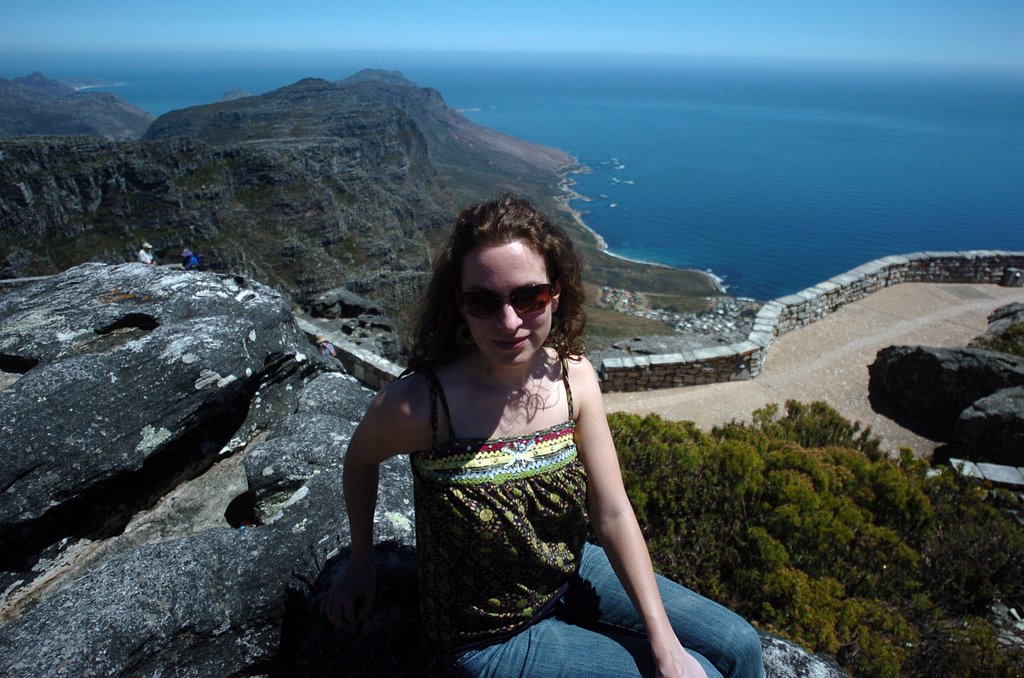WORLD VIEW: A visitor from Jordan

During the past three weeks, we hosted a visiting Jordanian journalist in our home and at our work, The Detroit News. Mr. Basil Okoor was an ideal guest, whose jovial sense of humor, candor, intelligence, energy and joie de vivre quickly made him a good friend too.
Basil was participating in an International Center for Journalists program for journalists who want to get professional experience in the United States. He and a partner run the independent news site ammannews.net (here's the translated version). Though his native language is Arabic and he insisted his English was not good, he was able to eloquently tell us about his life in Jordan and state his observations on the United States. I'd like to share some of what we learned with you.
JORDAN
- One of the more moderate Middle Eastern nations, Jordan is ruled by a king who appoints a Cabinet. The people elect a parliament, which is basically responsible for carrying out the king's orders. Frustrations are expressed toward these appointees rather than the king. Governing is a more fluid process than in the United States; officials can be ousted between elections if the king or the people are not happy with their performance.
- As a broadcast journalist, Basil was kicked off the air for his reporting. His Web site has been shut down twice by the government for reporting on the government. However, it is growing in popularity as people have a thirst for truth. Basil is a passionate believer that a free press is crucial to preserving the rights and freedoms of the people.
- Jordan has serious refugee issues. A January 2007 report in The Guardian stated, "There are thought to be 700,000 Iraqis now living in Jordan." That's in addition to the more than 1 million Palestinian refugees living in Jordan as of June 2007 (Source: International Herald Tribune).
- Jordan is surrounded by Israel, Lebanon, Syria, Iraq and Saudi Arabia, with Egypt just a stone's throw away. I am fascinated by what it must be like to live in a place where so many conflicts are boiling on (coming over) your borders, even as you try to maintain peace within and not get sucked into regional/global disputes.
- The most popular dish is made and eaten this way: Meat is cooked slowly in a yogurt sauce. Then, the pieces of meat are placed on top of a large platter of rice, which is set in the middle of the table, and the yogurt sauce is drizzled over top. Everyone eats from the same platter and uses their hands and pieces of bread. If you start to eat a piece of bread, you should finish it.
- Jordan does not have the oil wealth of neighboring Saudi Arabia.
- Family and education are very important. Families take pride in the number of children they have.
- Jordan is home to Petra, one of the Seven Wonders of the World, and borders the Dead Sea.
- Falafel is a popular food option among poorer people.
UNITED STATES
- Basil praised the journalists he met at the Washington Post, inspired by their passion and loyalty. However, at other papers, he found the people to be nice, but lacking passion for their craft.
- Things in the United States are very organized.
- Americans work a lot and do not have enough time to spend with their families and friends.
- The culture is very violent - from TV's gore and emphasis on war and scary movies to football's gladiator mentality. He observed that every statue he'd seen was related to the military.
- Health care (or lack thereof) and homelessness were shocking. He was surprised that the society as a whole did not have the heart to make the well-being of its members a top priority.
- The level of poverty and deterioration in Detroit amazed him. He referred to it as a "ghost town" and a "dying city" and repeated, "something is wrong here," while shaking his head.
- The lack of mass transportation and the spread-out nature of Detroit vexed him.
Let's talk. I'd love to hear your comments and questions.
We miss Basil already and can't wait to go visit him in Jordan where we can see the sites and meet the family!


0 Comments:
Post a Comment
<< Home